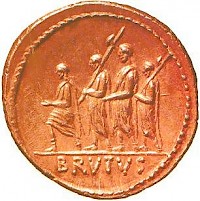Proconsul
Proconsul: Roman magistrate, former consul in charge of a province.

Like a propraetor, the proconsul was someone who acted as if (pro) he were an official magistrate. He could have all the powers of a consul, but was, in fact, a former consul whose term in office was prolonged (prorogatio).
This magistracy was 'invented' in the last quarter of the fourth century BCE: if a war lasted a long time and needed more than two commanders, the consuls of the preceding year stayed in offices 'as if they were consuls'. This custom became popular during the war against Hannibal; an innovation was the appointment of private citizens as proconsuls (i.e., people who were not former magistrates). The oldest example is Publius Cornelius Scipio, who received this rank to conduct the war in Hispania (211).
In the first century BCE, former consuls served as governors of important provinces 'as if they were consuls' (e.g., Julius Caesar was consul in 59 and proconsul of Gallia Cisalpina in 58-49).
Under the empire, the governors of the senatorial provinces were usually called proconsuls, although they were in fact former praetors. They served typically twelve months.
The emperor Hadrian briefly experimented with proconsular government of Italy, but his successor Antoninus Pius reversed this policy. However, Marcus Aurelius reinstated it.